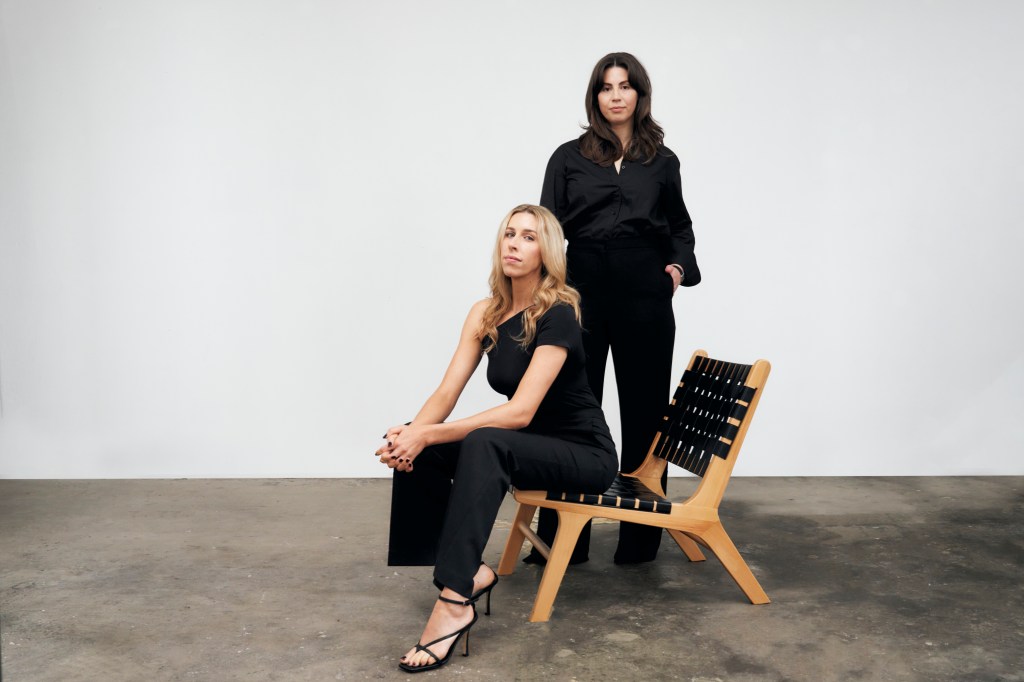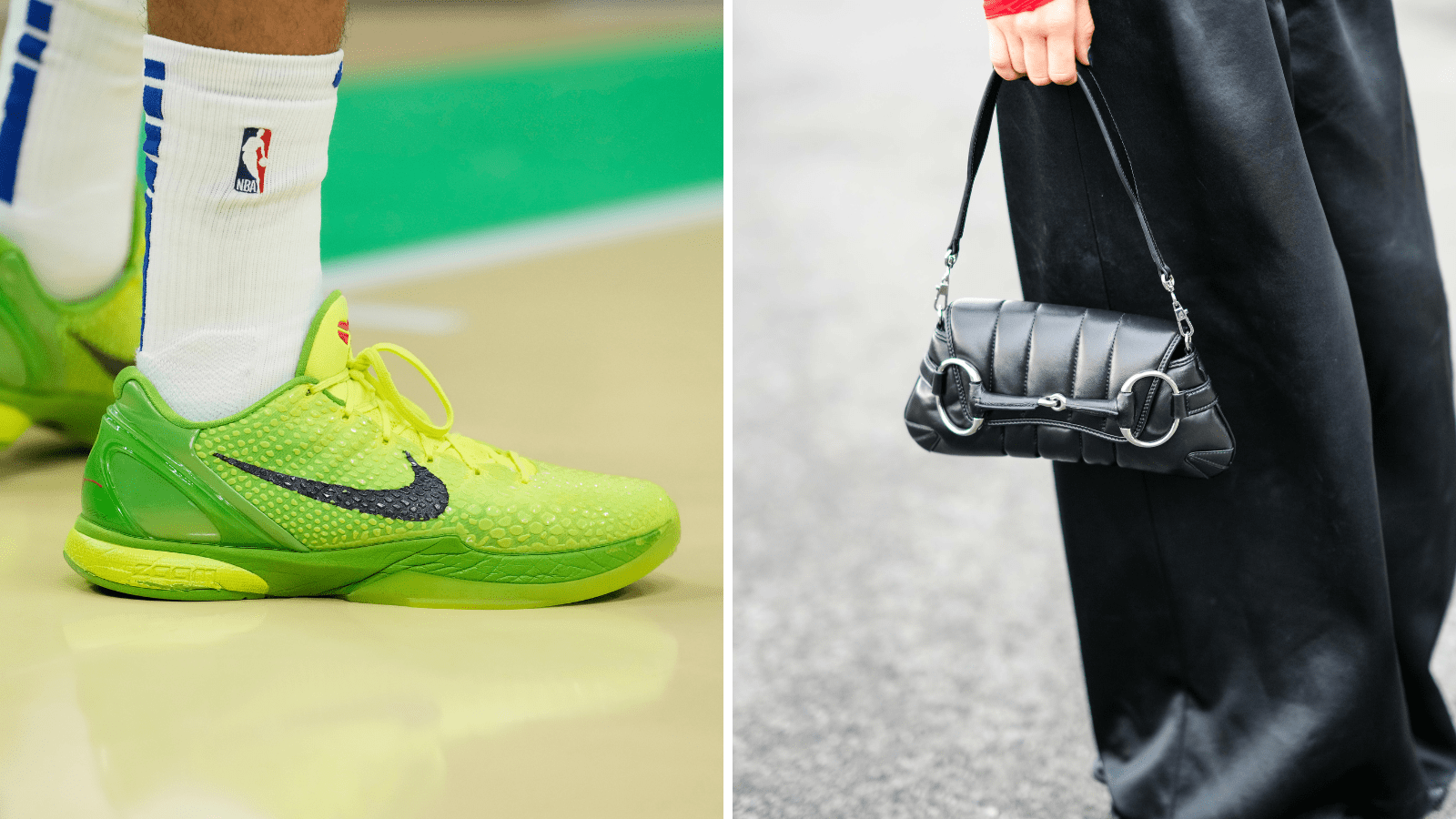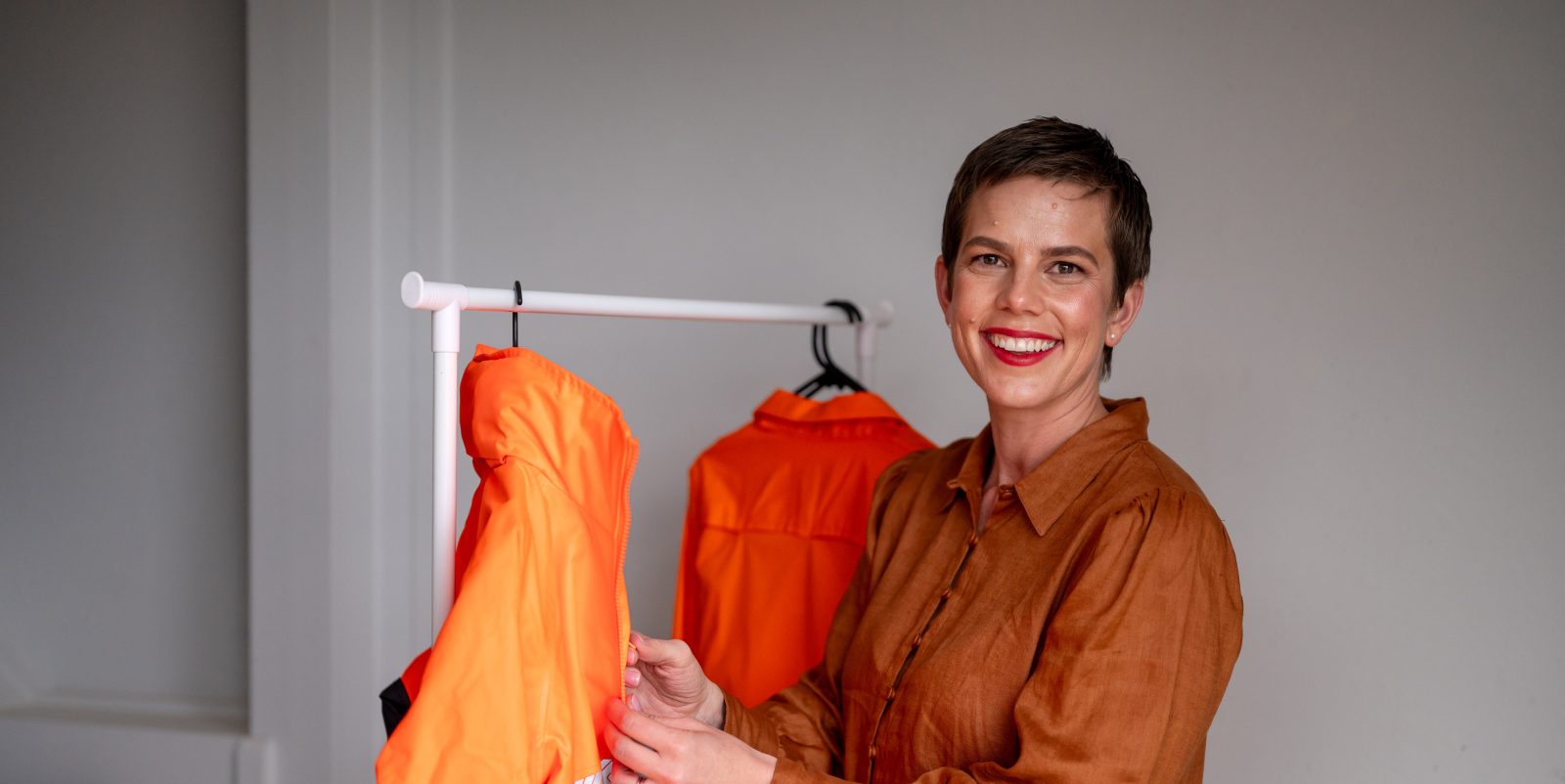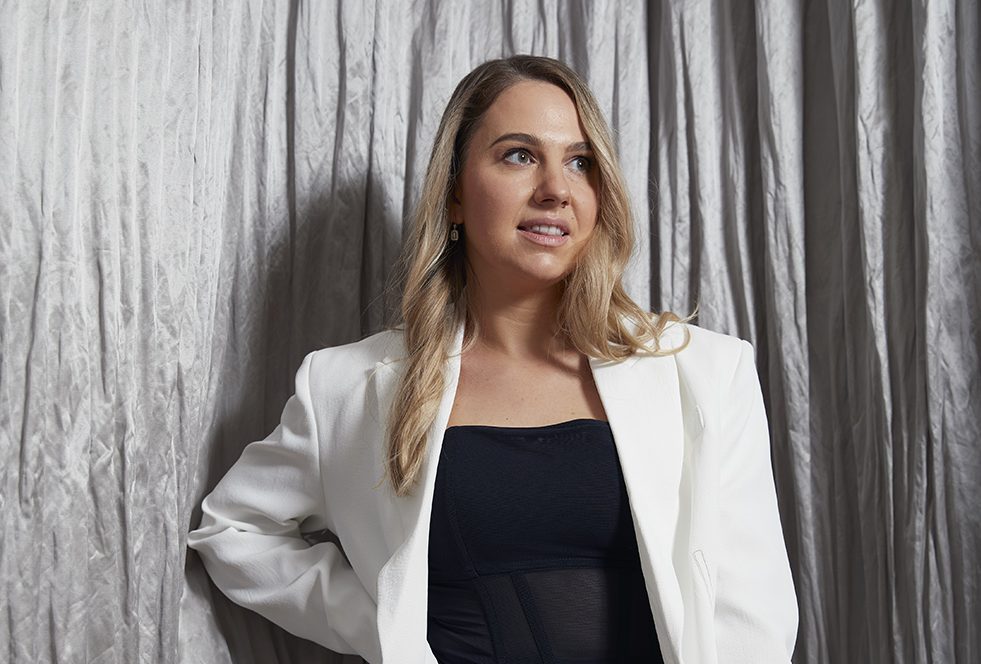Harvey Norman chief and billionaire Katie Page says she didn’t need much convincing when Brooke Marks and Lauren Kennedy came a’knocking, seeking investment for their Facebook-group-turned-app.

Years before the concept of a circular economy hit the mainstream, Brooke Marks founded a secret Facebook group called High End, with a view to re-sell designer, high-end items. It was an invite-only group – this reporter scored one herself in 2016 – for fashion’s inner circle and luxury resale aficionados. You’d post a luxury item in there, name your price, and communicate with other group members to get it off your hands.
Today, over 4,000 new items are listed in the group each month, at a growth rate of 130% year-on-year. In the 2022 calendar year alone, the group recorded 30,000 sales. And its 110,000 group members are devout – it boasts a 91% NPS score.
In 2018, four years after High End started, Marks met Lauren Kennedy (via the group). Kennedy, who’d studied fashion and physics and went on to work as a fraud-risk data scientist at Macquarie Bank, worked with Marks on a new division of the business: consignment, where the founders would sell your item for you.
“There was 10 years of sweat equity put into growing the group organically,” the founders say, adding they each invested $10,000 over the last few years to begin building the group into a scalable business model. But outside of engaging some retailers as advertising partners in the group, the platform was not able to be monetised.
Fast-forward to 2020, Kennedy calls Marks with a business idea: she’d built a business model around resale technology for authentication, pricing and investment ratings.
“Facebook was never built to be a resale platform,” they say. “The High End customers are constantly faced with Facebook removing their posts, no ability to search for products or have the ecommerce experience.”
And High End’s hands were also tied in how it could protect customers from fraud and counterfeits. So the founders decided to switch gears and take their platform off Facebook and into their own hands via a High End app, a decision which coincided with the rise of the resale market.
This year, the luxury resale market was valued at US$39.23 billion, according to ResearchandMarket, and Statista expects the market to grow to US$52 billion by 2026, growing at a CAGR of 9.6%. And the global counterfeit problem is huge – in 2020, the total value of counterfeit products sold exceeded US$1.8 trillion.
Key to the app, which launches on November 26, is its AI-driven authentication ability, which automates authentication so users know the product they’re buying is legitimate. The technology built into the app can also predict trends, to help buyers and sellers succeed in the resale market.
And it’s backed by a cohort of high-profile investors, including billionaire Harvey Norman CEO Katie Page and director of APG & Co, Andrew Michael.
“It is fundamental young female entrepreneurs in Australia deserve support, particularly in the tech space,” Page tells Forbes Australia.
“When High End was pitched to me by Lauren and Brooke, as a retailer I saw the potential straight away and didn’t need much convincing to come in as one of their founding shareholders and be a sounding board whenever needed. I’m looking forward to following their journey both in Australia and overseas – it will be exciting.”
Michael says the reselling of luxury products on a secure, controlled platform like High End was an attractive investment – and High End’s community was a major draw-card.
“What sets High End apart is its distinctive community-centric business model, offering a promising trajectory for success,” he says.
“Companies with similar foundations have showcased impressive growth internationally. High End stands as a trailblazer in Australia with this kind of innovative approach. The energy, determination, knowledge, and professionalism of the founders was equally compelling.”
Kennedy and Marks expect High End to be a 95% peer-to-peer platform by 2025, and the go-to shopping destination for luxury resale. And when the company is ready to expand internationally, it’ll seek out further investment.
“Different markets require a lot of research and investment to ensure our product reaches fit. With the aim to scale, comes the need for investment,” the founders say. “We are solving a problem that we have felt ourselves and is still occurring in the market today. We are not building this for us or for a hobby, we are solving a US$1.8 trillion counterfeit problem that the resale market struggles with each year. We want to share this solution with global customers, and that will require additional capital.”
Look back on the week that was with hand-picked articles from Australia and around the world. Sign up to the Forbes Australia newsletter here or become a member here.


